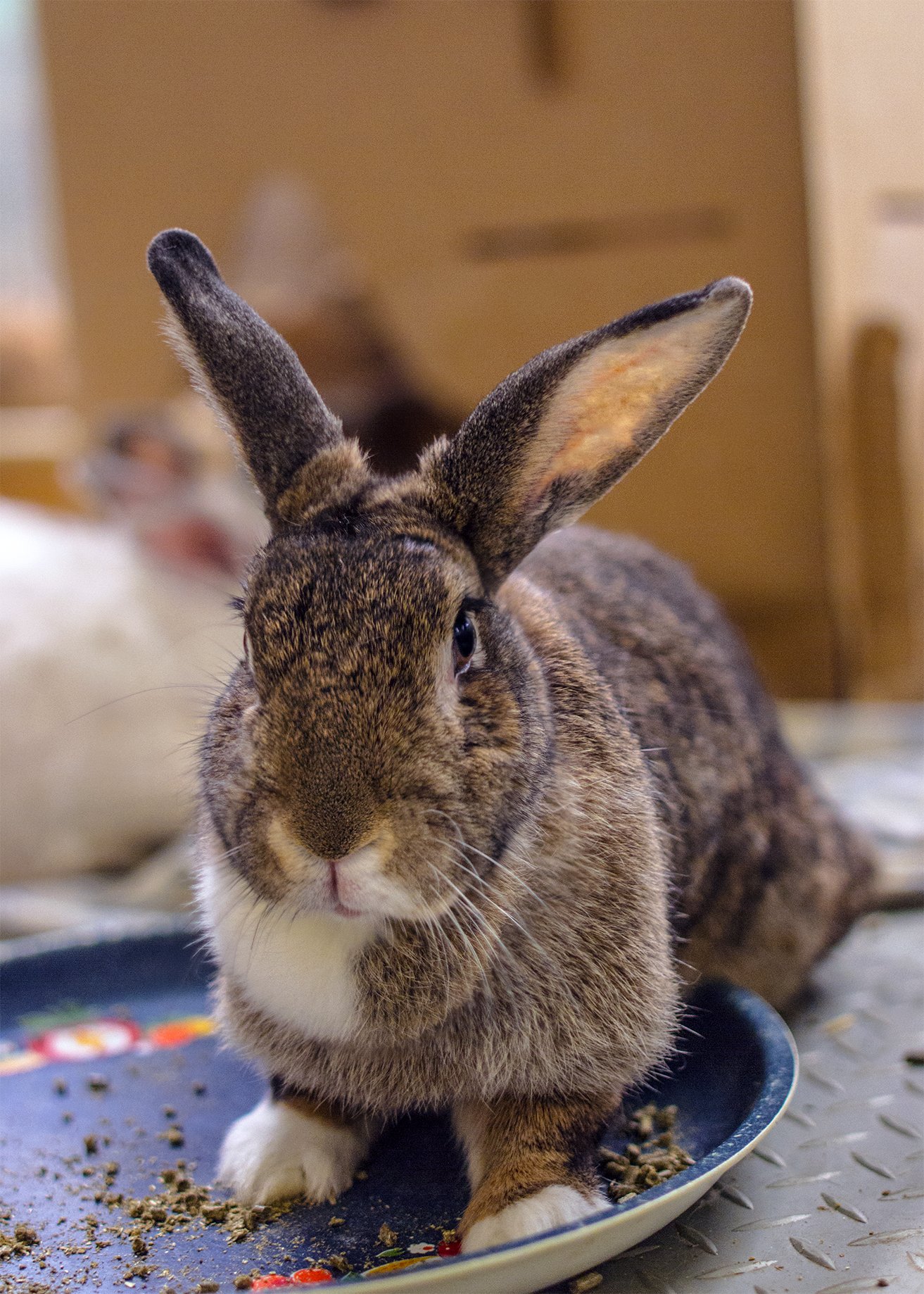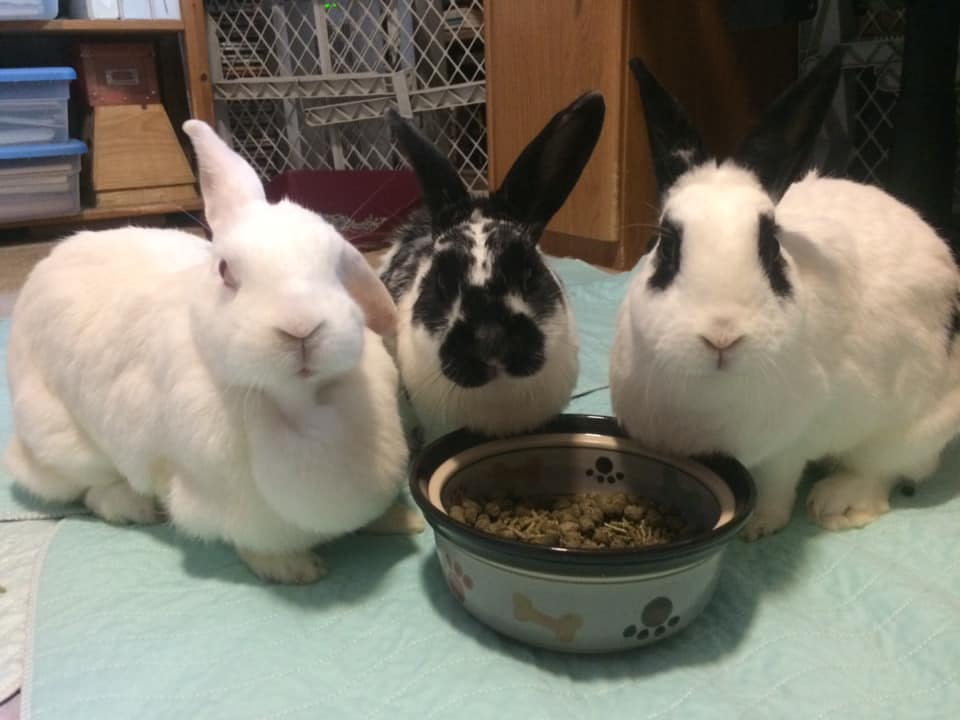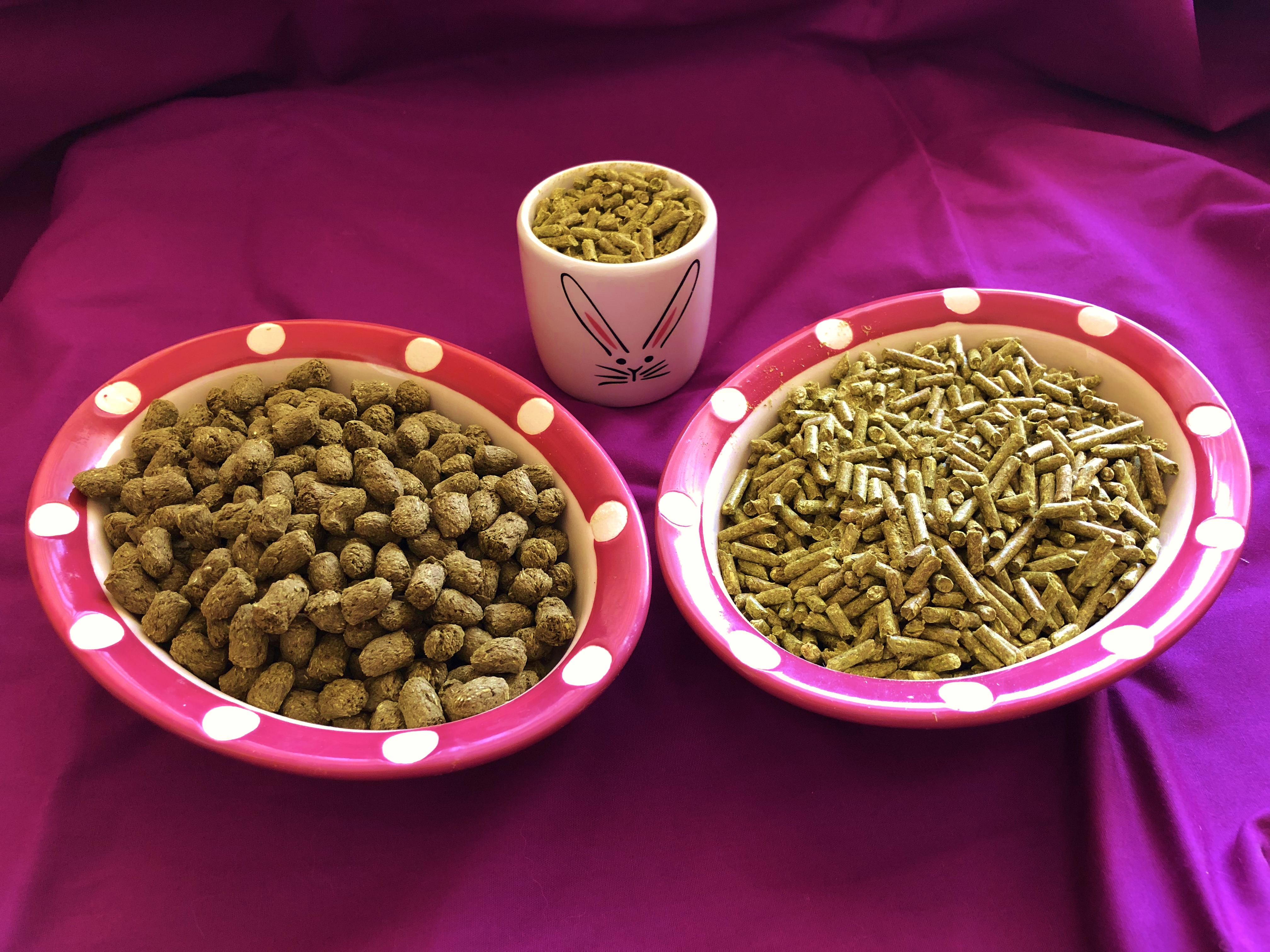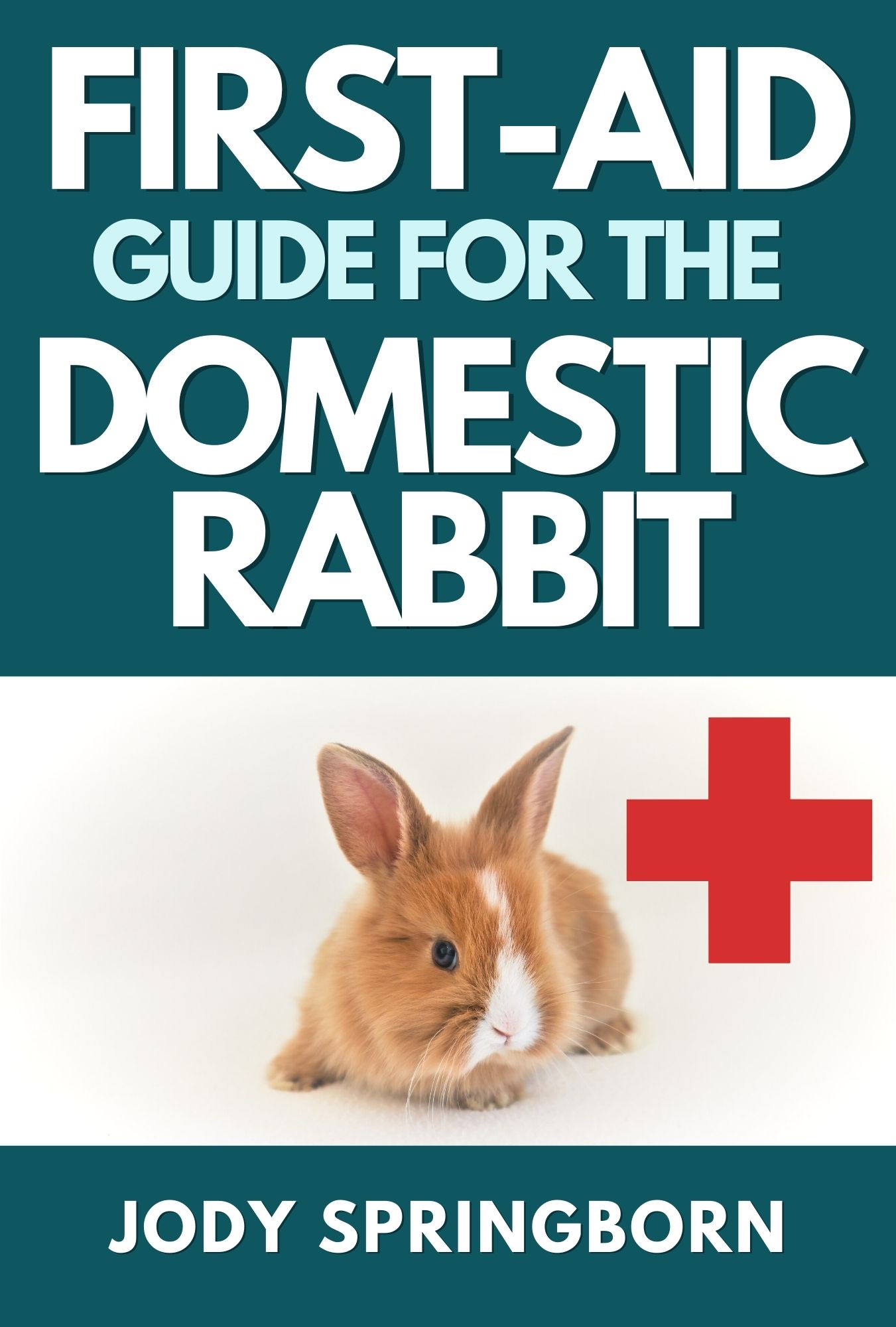- Home
- Rabbit Diet
- Rabbit Pellets
Rabbit Pellets
 Petra and her pellets.
Petra and her pellets.Photo by Dustin Yoder taken at BunnyLuv Rabbit Resource Center.
What's in a Pellet?
Rabbit pellets are another topic that can cause a great deal of debate in the rabbit community. Pellets are a source of important vitamins and minerals. These nutrients may be difficult for a rabbit to obtain by a diet of veggies and hay alone, especially since we as owners are limited by selection, price and time needed to find all the different varieties of greens and grasses needed - and in the right amount - to provide our bunnies complete nutrition. That being said, there may be instances in which a rabbit may not tolerate pellets very well or may be extremely overweight. In those cases, it may be necessary to reduce or eliminate pellets altogether. In other situations, senior, chronically or acutely ill rabbits, as well as pregnant or lactating mothers and growing babies, may need an unlimited supply to either grow and/or to maintain weight and health.
Important: Rabbit pellets (including treats) should only consist of 5% of a rabbit's diet. Even though pellets pack in all the vitamins and minerals a rabbit requires, I would not recommend that a rabbit be kept on a pellet-only diet. First, there isn’t enough indigestible fiber to maintain digestive health. Second, a pellet-only diet often leads to weight gain and numerous health issues associated with it. How much to feed depends on the brand being used and their feeding guidelines.
 Emma, Whoppy and Zoe having breakfast.
Emma, Whoppy and Zoe having breakfast.There are many different brands out there. What makes a good rabbit pellet? There are two different types: the compressed and the extruded. This refers to how they are manufactured, and either one is good to feed out. The compressed are manufactured under low temperatures, while extruded are cooked and pasteurized at high temperatures. The extruded have longer fiber particles and are easier to digest. They are also thicker which (theoretically) forces the bunny to slow down and chew the food more thoroughly. This might be a more important consideration if your bunny gets so frantic about pellets that he chokes on them.
 The bowl on the left contains extruded pellets (Science Selective 4+). The bowl on the right holds compressed pellets (Oxbow Essentials Adult Rabbit). The rabbit container in the middle is a quarter cup, which is Oxbow's daily recommended feeding amount (using their pellets) for a normal 5lb adult rabbit.
The bowl on the left contains extruded pellets (Science Selective 4+). The bowl on the right holds compressed pellets (Oxbow Essentials Adult Rabbit). The rabbit container in the middle is a quarter cup, which is Oxbow's daily recommended feeding amount (using their pellets) for a normal 5lb adult rabbit.How to Choose a Good Rabbit Pellet
Choosing a good brand of rabbit pellets requires owners to read labels. Here are the guidelines to keep in mind when you go shopping. The following information comes from Lucile Moore’s Rabbit Nutrition and Nutritional Healing.
- Crude Protein: 13-17% (long-haired rabbits, large breeds and nursing mothers should have 17-20%)
- Crude Fat: 1-5% (although large breeds and angoras can have as high as 8%)
- Crude Fiber: min 16-18%, max 20-25%
- Calcium: min 0.6%, max 1.1%
The label may contain a combination of different forage products (such as alfalfa meal, timothy meal, etc.), processed grain by-products (such as wheat millings, soybean hulls, etc.), molasses (sugar to make it more palatable) and other plant protein and roughage products (such as soybeans or beet pulp).
Quality Pellet Brands
Many rabbit rescues, vet offices and long-time rabbit owners use Oxbow products, but there are also other quality brands out there. I am listing the main ones. Those with an asterisks are brands I have tried.
- Oxbow: Young Rabbit Food *
Adult Rabbit Food *
Garden Select Adult Rabbit Food *
Organic Bounty Adult Rabbit Food - Supreme Science Selective: Adult Rabbit Food *
4+ Mature Rabbit Food *
Supreme Selective Naturals (grain-free) * - Small Pet Select: Small Pet Select Rabbit Food
- Sherwood Pet Health: (watch feeding guidelines!) Both Alfalfa-based and Timothy-based pellets.
Things to Avoid
Avoid any animal protein, such as milk, bone meal or feathers listed in the ingredients, as these items are not digestible to rabbits.
You want to make sure the packaging is not infested with bugs, ripped or wet, as mold issues may be likely. Freshness is also important, as many vitamins lose their potency after 3-6 months, so make sure that you read the expiration date on the label.
A Word on Muesli Mixes
Some brands may sell a muesli mix, which typically contain some or all of the following: oats, corn, pellets, small compressed bits of hay (either timothy or alfalfa), seeds, nuts, yogurt drops, dehydrated vegetables and/or fruit, artificial flavoring and color in the mix. These sort of pellets absolutely must be avoided. There are several reasons for this. When rabbits are fed these sort of mixes, they will pick out their favorite bits and leave the hay and pellets in the bottom of the dish. Since they are not actually eating those ingredients that may keep them healthy, instead focusing on the treats, this selective feeding leads to a whole host of health issues, including stasis (due to an imbalanced diet and lack of fiber), dental problems, urinary issues, obesity, dermatitis, and most seriously, flystrike. All of these health issues can significantly reduce the lifespan of your bunny.
Another reason is the treats - seeds, nuts, dried fruit, etc. Although a rabbit can eat them, they are found in much higher quantities in these sort of mixes than if you just fed out a small piece of fruit on occasion.
Yogurt drops and corn should never be part of a rabbit's healthy diet.



